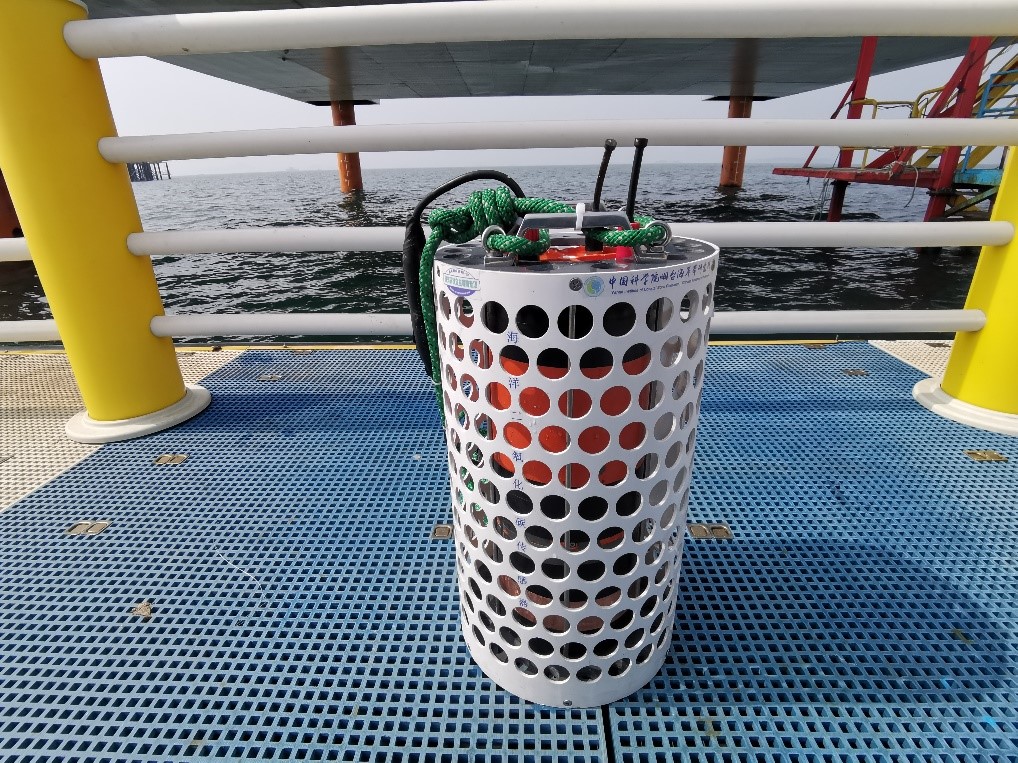CAS Researchers Develop Rapid in-situ Monitoring System of Dissolved CO2 in Seawater
The research group led by QIN Wei at the Yantai Institute of Coastal Zone Research developed a marine carbon dioxide (CO2) monitoring system based on electrochemical sensing for the rapid in site profiling of dissolved CO2 in seawater.
The increasing atmospheric CO2 output from anthropogenic perturbations can cause remarkably increased oceanic uptake for CO2, which could further result in a reduction of seawater pH and the pronounced changes in the chemical balance of the marine carbonate cycle, with a potential influence on marine biota and ocean ecosystem.
To accurately understand the impact of these changes on the marine carbon cycle, it is necessary to quantify the dissolved CO2 variability in seawater with high temporal and spatial resolution. Since the changes in sample can occur during sampling, sample transport and measuring procedures due to the re-equilibration between the seawater sample and the atmospheric CO2, in-situ measurements of dissolved CO2 is of great significance.
The monitoring system consists of the probes for seawater parameters (i.e., pH, conductivity, temperature), an electrochemical sensing unit based on ion-selective electrode for selective carbonate detection, a control system for sensor calibration, autonomous sample analysis and salinity impact correction, as well as a flow system for the injection of calibration solutions or seawater samples.
It should be noted that the salinity correction can offer an improved detection accuracy in a high salinity background, making the proposed CO2 monitoring system suitable for marine monitoring. The functioning of the dissolved CO2 detection system was checked via long-term monitoring in three different sea areas of China (i.e., the Bohai Sea, the Yellow Sea and the South China Sea).
This system offered a response time of 40 s, a reproducibility of 0.3% and a detection accuracy of 95% compared to the reference technique (water vapor separation-nondispersive infrared spectroscopy analysis) for real-time monitoring of dissolved CO2 in the Bohai Sea.
The monitoring system works properly during the testing time. Obtained results indicate its capability to autonomously operate with routines for seawater analysis, sensor calibration, data storage and transmission.
Such a submersible monitoring system may give rise to new opportunities for obtaining rapid and accurate information about carbon cycle in marine system without the requirement of sample pretreatment.

Photograph of the marine carbon dioxide monitoring system based on electrochemical sensing (Image by YIC)